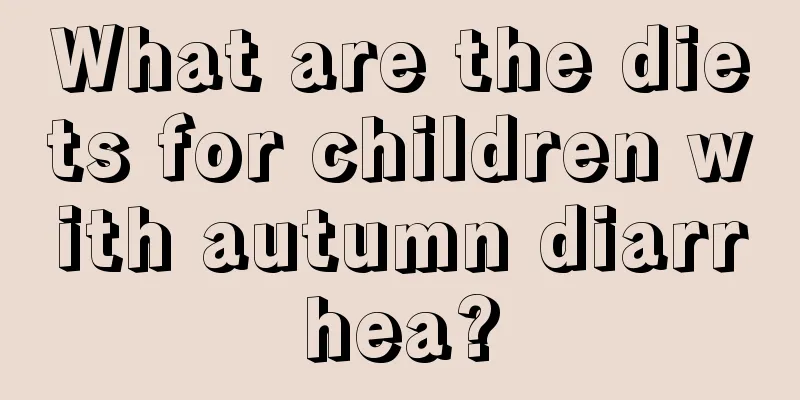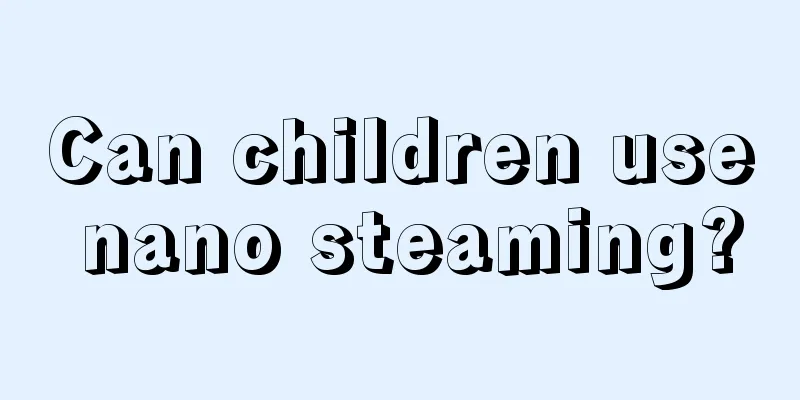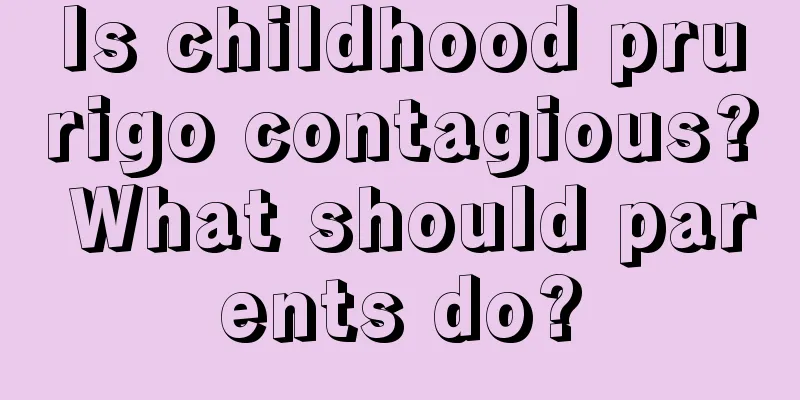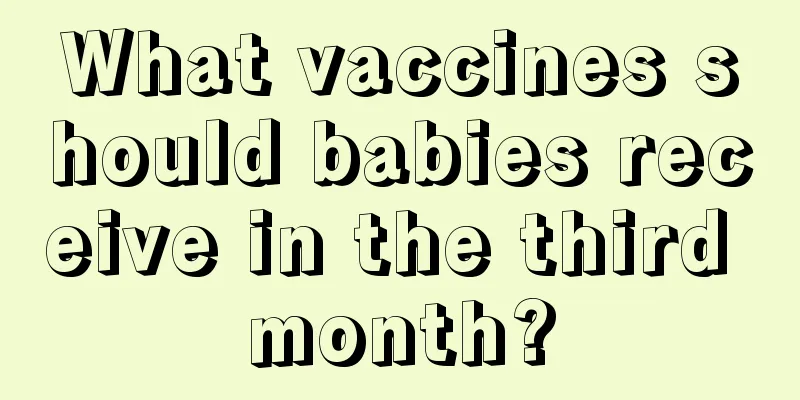What to do if your child suddenly has a fever at night
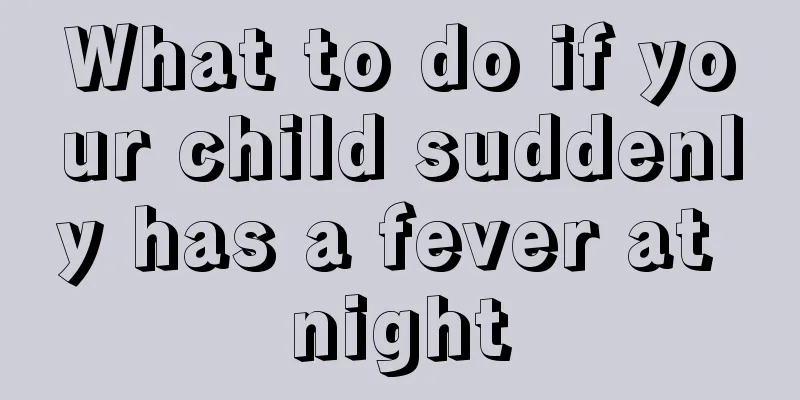
|
It is common for children to have a headache or fever, so parents should not worry too much. You should know that the more worried and afraid they are, the more likely something will happen to their children. What parents are usually most worried about is that their children will have a fever in the middle of the night, especially if the children often play outdoors. If they catch a cold, it is easy to cause a fever. So, what should parents do when they find that their children have a fever at night? What causes children to have a high fever in the middle of the night? There are many causes of fever in children, which can be roughly divided into the following three categories: 1. External factors Children's body temperature is affected by the external environment, such as wearing too many clothes when it is hot, drinking too little water, and poor ventilation in the room. 2. Internal factors Sickness, cold, tracheitis, sore throat or other illness. 3. Other factors Such as preventive injections, including measles, cholera, diphtheria, pertussis, tetanus and other reactions. Fever is only one symptom of the disease, not all of it. What should I do if my child has a high fever in the middle of the night? When it comes to fever, what matters is the impact and progression of the disease itself, but parents usually only see the appearance of the disease, such as fever, vomiting, and cough, and then they panic. As a parent, the correct way to reduce fever should be: 1. Maintain good air circulation If your home has air conditioning, maintain the room temperature between 25 and 27 degrees Celsius. You can place the child in an air-conditioned room or blow an electric fan around him to slowly lower his body temperature, which will make the child feel more comfortable. But if the limbs are cold and the patient is shivering violently, it means that the patient needs warmth, so he should be covered with a blanket. 2. Take off too much clothing Don’t panic when your baby has a fever. Pay attention to other symptoms and overall condition before taking appropriate action. If your baby's limbs, hands and feet are warm and he is sweating all over, it means he needs to dissipate heat and he can wear less clothes. 3. Try a warm water bath Undress the baby and rub the whole body with a warm water (37℃) towel. This will dilate the blood vessels in the baby's skin and release body qi. In addition, when water vapor evaporates from the body surface, it will also absorb body heat. 4. Use an ice pillow or a fever-reducing patch It helps to dissipate heat, but it is not recommended for younger children because it is difficult for them to turn their bodies and the ice pillow can easily cause local overcooling or hypothermia. You can also use a cooling patch. When the water in the gelatinous substance of the cooling patch evaporates, it can take away the heat and will not cause excessive cooling. 5. Drink more water to help sweat To help sweating and prevent dehydration. Water has the function of regulating temperature, which can lower body temperature and replenish water lost in the baby's body. 6. Use antipyretics with caution When the core temperature (rectal temperature or ear temperature) of an infant or young child exceeds 38.5℃, antipyretic solutions or suppositories can be used appropriately. Antipyretics come in liquid form, tablets, suppositories and injections. Liquid forms are generally milder. ① The most commonly used are syrups containing paracetamol, such as children's Motrin syrup and children's Baifuning drops. Aspirin tablets are also effective in reducing fever. However, aspirin should not be used in certain viral infections, such as chickenpox or influenza, as it may trigger Reye's syndrome. ② Suppositories are inserted into the anus and absorbed by the rectum. They are effective quickly and can reduce fever even when children refuse to take medicine. They are very convenient. However, it is better to use small amounts. Frequent use can easily lead to excessive fever reduction, a sudden drop in body temperature, or repeated irritation of the anus, causing diarrhea. ③Giving antipyretic injections is the least safe because children may suffer from allergic shock. The above method is how to deal with children’s fever in the middle of the night. Parents can learn from it. It is best to prepare some antipyretic drugs at home so that you can deal with your child’s fever in time. To avoid being in a hurry at that time, this antipyretic medicine should be a special children's medicine. Do not use adult medicine for children. |
<<: What to do if a one-year-old child has a fever
>>: What to eat for constipation in 3-year-old children?
Recommend
Why does my baby have diarrhea after feeding?
For many young fathers and mothers, raising child...
Can children eat durian at night?
Durian is a relatively common fruit, but due to i...
What causes a lump in the baby's chest?
For many parents, shortly after their baby is bor...
How to wean baby off from night feeding? These methods are available
Breastfed babies need to feed many times at night...
What causes white spots in baby's mouth?
Once some babies have problems, they need timely ...
The causes and clinical manifestations of children's phobias
What is childhood phobia? Many of our children ar...
The baby's belly button fell off and there was some bleeding
If parents find that their baby's belly butto...
What is the reason for the white mark on the child's scar?
After a child's skin is traumatized, it will ...
What should I do if my 10-month-old baby has a runny nose?
Taking care of a child is not an easy task. It is...
What can’t babies eat before they are one year old? Remember these taboos
Parents should not feed their children foods that...
Is emergency room visit contagious for young children?
Young children have relatively weak constitutions...
What to do if children are not good at studying
For parents, in addition to worrying about their ...
What should I do if my six-year-old child has poor memory?
Six-year-old children are at school age, and they...
How to treat hunchback in children?
Children should live an innocent and carefree lif...
How to treat mycoplasma pneumonia in children?
Generally, children will have troubles after bein...

